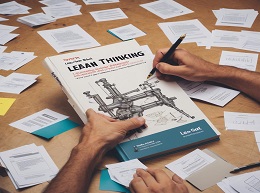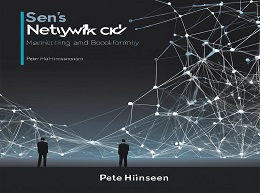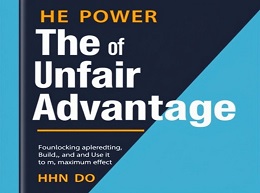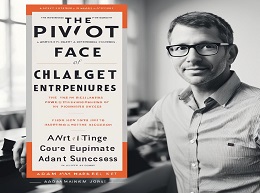Zero to One

In an era where innovation is hailed as the cornerstone of success, Peter Thiel's "Zero to One" emerges as a beacon of insight and guidance. This seminal work delves deep into the intricacies of startup culture, entrepreneurship, and the essence of true innovation.
The Author: Peter Thiel
Before delving into the content of "Zero to One," it's imperative to understand the mind behind the words. Peter Thiel, renowned entrepreneur, venture capitalist, and co-founder of PayPal, brings to the table a wealth of experience and wisdom gained from his ventures in Silicon Valley and beyond.
From Zero to One: The Core Idea
At the heart of Thiel's philosophy lies the concept of moving from "zero to one" - a journey from nothingness to uniqueness. Unlike incremental progress (moving from 1 to n), true innovation entails creating something entirely new, thereby monopolizing a market. Thiel argues that such ventures hold the key to long-term success and societal progress.
Monopoly and Innovation
Thiel provocatively suggests that competition is overrated. Instead of striving to compete in existing markets, entrepreneurs should aim to create monopolies by offering products or services that are unparalleled. He illustrates this point with the example of Google, which dominated the search engine market due to its superior algorithm and user experience, effectively establishing a monopoly.
The Importance of Singular Vision
"Zero to One" emphasizes the significance of having a singular vision and the courage to pursue it relentlessly. Thiel underscores the need for founders to think contrarian and avoid the herd mentality. He cites Elon Musk's audacious vision of colonizing Mars as a prime example of thinking beyond the conventional boundaries, inspiring innovation on an unprecedented scale.
Building a Strong Company Culture
Thiel emphasizes the role of company culture in fostering innovation and long-term success. Drawing from his experiences at PayPal and other ventures, he stresses the importance of hiring the right talent and cultivating a culture that values creativity, risk-taking, and accountability. The PayPal Mafia, a group of former PayPal employees who went on to found successful companies like Tesla and LinkedIn, exemplifies the power of a strong organizational culture.
The Challenge of the Future
"Zero to One" doesn't shy away from addressing the challenges that lie ahead in an increasingly competitive and rapidly changing world. Thiel urges entrepreneurs to focus on solving pressing problems and creating sustainable solutions rather than chasing short-term gains. He warns against the dangers of complacency and encourages continuous innovation and adaptation.
A Call to Action
In conclusion, "Zero to One" serves as a manifesto for aspiring entrepreneurs and innovators, offering invaluable insights and guidance on the path to success. Thiel's bold ideas and thought-provoking concepts challenge the status quo and inspire readers to think differently about innovation, entrepreneurship, and the future of society.
Takeaway Points
True innovation entails creating something entirely new, moving from zero to one.Monopolies can be beneficial if they result from offering unparalleled value to customers.Singular vision, strong company culture, and a focus on solving meaningful problems are essential for success.Continuous innovation and adaptation are key to thriving in an ever-changing world.Additional ResourcesFor further exploration of Peter Thiel's ideas and principles, readers are encouraged to delve into his other works, such as "The Lean Startup" by Eric Ries and "The Innovator's Dilemma" by Clayton Christensen.
By embracing the lessons of "Zero to One," aspiring entrepreneurs can embark on a journey of innovation and transformation, bringing their bold ideas to life and shaping the future of business and society.













